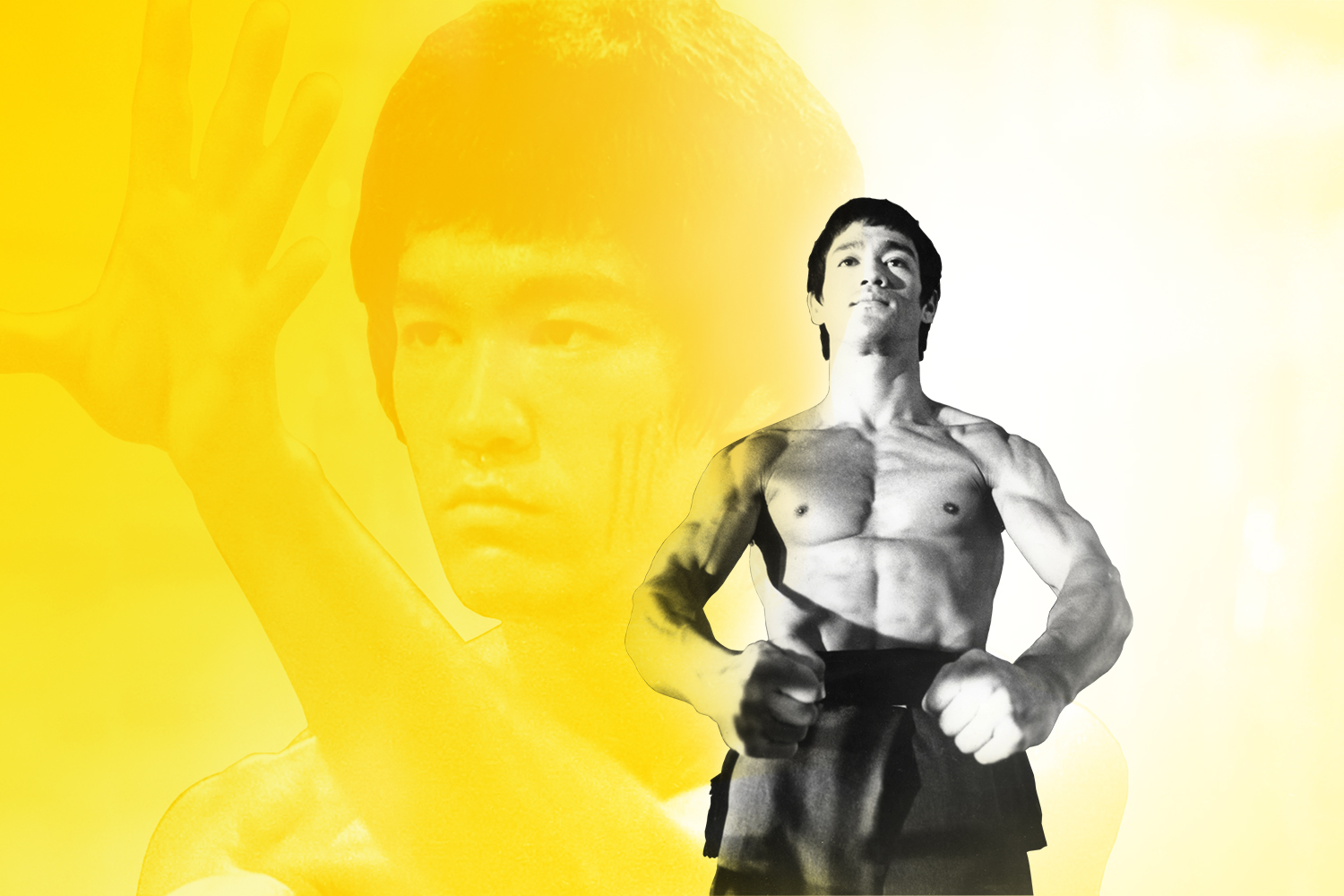#30 Purpose
Bruce Lee was driven by his own Purpose in life: “All in all, the goal of my planning and doing is to find the true meaning in life: peace of mind.”
Bruce’s Purpose was “peace of mind,” rather than his specific goals of becoming a big movie star or financial success. His big Purpose was self-actualization.
“Completeness, the now, is an absence of the conscious mind to strive to divide that which is indivisible. For once the completeness of things is taken a part, it is no longer complete. All the pieces of a car that has been taken a part may be there, but it is no longer a car in its original nature which is its function or life.”
If your goals are infused with purpose, then it never feels like you’re striving, it feels like it’s a pursuit of becoming. You feel like you’re becoming more of yourself in the accomplishment of your goals rather than needing to accomplish goals for outside accolades and prestige.
So much of our culture is built on the pursuit of things, prestige and status—these do not make us happier and often cause anxiety.
“I don’t really worry about the reward but to set into motion the machinery to achieve it.”
“A purpose is the eternal condition of success.”
It’s hard to find your purpose if you are struggling with simple tasks, but if you can imbue your daily tasks with purpose, then they can be easier to accomplish and less overwhelming. When we have purpose, it is easier to focus.
“Come to some sort of realization as to whatever your pursuit might be. In my case, it has been the pursuit of becoming moment to moment, and constantly questioning myself: What is this Bruce? Is it true or not true? Do you really mean it or not mean it? Once I’ve found that out, that’s it.”
For everyone asking what your purpose is, your main purpose is to become your true self. You don’t have to have your purpose figured out, but put yourself on a path to find it. Do you feel like you’re in the flow, or stagnant?
“The spirit of the universe is instinct with contrivance which flows with purpose.”
By “contrivance” Bruce meant skill, so when you combine instinct and skill with your energy and purpose then you can just flow.
Take Action:
Ask yourself this: Can I create purpose around whatever task that I have to do? Take a mundane task and infuse it with purpose. A larger research project would be to ask 10 people close to you how they experience your essence and the moments when they see you come alive and express joy. Ask: when do you see me light up or become joyful? People close to us can sometimes see us more clearly than we can see ourselves.
If you’d like to share how you’re doing with this action item you can email us at hello@brucelee.com or on social @BruceLee.
#AAHA
(Awesome Asians and Hapas)
This week we highlight Lulu Wang, an American filmmaker and writer. Shannon knows Lulu because they worked together several years ago when Lulu was first starting out. Born in Beijing and classically trained in piano, Lulu graduated from Boston College with a double major in Literature and Music. In 2016, Lulu released her first feature length film “Posthumous” and earlier in 2014 she was awarded the Chaz and Roger Ebert Directing Fellowship. Her short film “Touch” premiered at the 2015 Palm Springs International ShortsFest and won Best Drama at the Asians on Film Festival. In May 2016, Lulu wrote a story for NPR’s “This American Life” that is being developed into a feature film. Lulu you’re successfully pursuing and we think you’re awesome!
#BruceLeeMoment
This week’s #BruceLeeMoment comes from Gakuji Tobiyama all the way from Australia:
Sunny and warm greetings from Brisbane, Australia! I just drove home from work listening to your 19th episode with Steve Aoki, and there were moments my eyes were feeling teary. It's insane, I know. I must be getting really old, but this is yet another awesome episode of the Bruce Lee Podcast! I've been following it since it was first advertised on iTunes. I was so intrigued that I couldn't wait for the first actual content episode. Anyway, here I am, after finally mustering up the courage to write you all a thank-you email. Whenever I'm feeling out of sorts or just downright depressed, I know I can swipe to your podcast on my phone and get a good caffeine-free, chemical-free, and sugar-free stimulant to get me breathing back to sanity.
This doesn't qualify as a "Bruce Lee Moment", but some of the points you and your guest touched upon greatly resonated with me. It's not the first time I felt this about your podcast, of course, but I chose to respond to this episode because, as a 2nd generation Japanese North-American myself, I identified with the childhood memories and cultural perspectives Steve Aoki had described. Some non-Asians and even recent Japanese immigrants look at me in surprise or suspicion when I talk about the racial discrimination or racist behaviour, violently obvious or subtly implied, that I and fellow Japanese (or Chinese, Korean, Vietnamese, etc) immigrant children experienced growing up in the 70s and 80s in Canada - yes, even in culturally diverse Montreal and Toronto. But that's where Bruce Lee comes in. He has taught me that, as far as my personal development is concerned, none of that matters, and that it is not in my interest to let some external condition interfere with where I want to go or be in life. If I do let it interfere, that is equivalent to hiding behind an excuse for failure. In my mind, he does not say ignore it but be sufficiently aware and re-form myself around, over, under or through it. His words "Be water, my friend" was an "Ah-ha!" moment for me and became etched in my mind long before they became popular shirt logos. (Episode 17 is particularly relevant because willpower helps that water flow better.)
I do realize it's easier said than done, especially when there's a young family to support, just as Bruce Lee and my own father did. To say the least, opportunities for Asians in the late 60s to 70s were not as numerous or diverse as they are now, not that the situation is rosy now either. My father became disillusioned and ultimately returned home to his country to start again. Bruce Lee could not go back. Instead, he accepted his difficulty and converted it into an opportunity. I was highly inspired by that attitude and approach to life, and I think I've done my best so far to emulate that. I give myself a generous B minus. Haha.
A relatively long while ago, I saw the restored interview of Bruce Lee by the Canadian journalist, TV personality and author, Pierre Berton, before I knew much about Bruce Lee's personal life. When I first heard him talk about his water analogy, that was my first Bruce Lee Moment, because right then, I knew I had not been living my life like water but rather a block of ice. Drop me and I smash into pieces, clench me long enough and I'll give the beholder a mild frostbite. Whatever the case, it's not fluidity and adaptability; it's stagnation and destruction. I'd been brittle solid ice for a long time, and Bruce Lee taught me to let my "mental molecules" change state to allow myself to flow smart or "crash" through mental barriers with intent and intensity.
I don't know if anything I've written makes any sense, but I thank you for this opportunity to express my thoughts and reflections. Looking forward to future episodes! And yes, I will donate what I can. Gakuji Tobiyama
Share your #AAHA and #BruceLeeMoment recommendations with us via social media @BruceLee or email us at hello@brucelee.com.


